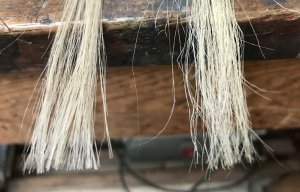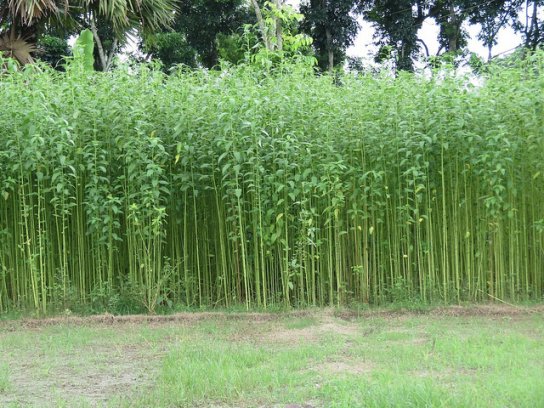
Potential for graphene-strengthened jute
The Union Ministry of Textile is planning to promote use of jute geo textiles for construction of rural roads across India. Geo textiles are permeable fabrics used as an agent to strengthen the road foundations and prevent soil erosion along the banks. Jute geo textiles are said to be about 25% cheaper than other fabrics. However, this bio-degradable material is low on longevity and is best used in rural or arterial roads, which do not attract heavy traffic.

6th January 2014
Innovation in Textiles
|
Kolkata
The Union Ministry of Textile is planning to promote use of jute geo textiles for construction of rural roads across India.
Geo textiles are permeable fabrics used as an agent to strengthen the road foundations and prevent soil erosion along the banks. Jute geo textiles are said to be about 25% cheaper than other fabrics. However, this bio-degradable material is low on longevity and is best used in rural or arterial roads, which do not attract heavy traffic.
According to a National Jute Board (NJB) official, jute-based textiles are currently in use in constructing 35 ongoing rural roads, under the Pradhan Mantri Gram Sadak Yojana, across the country.
While majority of the projects are in Karnataka, in South West India, the practice is gaining popularity in at least three other states, including Odisha, Madhya Pradesh and West Bengal.
Subrata Gupta, Jute Commissioner, said that the use of jute geo textiles is likely to move up substantially in the next two years. According to Gupta, project reports for nine roads spread across five states such as Chhattisgarh, Madhya Pradesh, Odisha, Assam and West Bengal have also been prepared.
Rough estimates available with NJB suggest that consumption of the fabric increased by about 10% a year since 2010.
In 2010, approximately 60 lakh square metres of jute geo textile were used in road development, a top official of the cell added. Out of the 80 odd jute mills operating across the country, 13 mills manufacture jute geo textile.
Despite efforts to promote the natural fibre, absence of a regulation for mandatory use of jute instead of synthetic textiles and lack of support from local administration pose challenges before the industry, it has been reported.
“It is an uphill task to convince various agencies and engineers the benefits of jute geo textile unless there is a mandate,” the top official said.
According to him, it will also be difficult to involve more jute mill owners in production of the fibre until the demand situation improves.

Business intelligence for the fibre, textiles and apparel industries: technologies, innovations, markets, investments, trade policy, sourcing, strategy...
Find out more